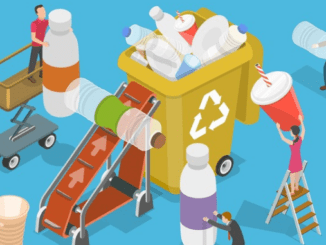
Why would you make something that you’re going to use for a few minutes out of a material that will last forever? Find out how to reduce your plastic usage below
CREDIT: This is an edited version of an article that originally appeared on First Practice Management
For everyone who works in primary care, going plastic free is something that we’ve all been trying to do for a while now. According to NHS Providers website, the percentage of plastic waste in NHS waste streams is significantly higher than other industries, with plastic making up 22.7% total of all waste, with 13.7% being plastic film and nine per cent being hard plastic.
The really startling fact is that, whilst the NHS disposes of around 133,000 tonnes of plastic each year, only about five per cent of this plastic waste being currently recovered and recycled. Back in 2019 the NHS did run an NHS Single-Use Plastics Reduction Campaign Pledge, but more needs to be done each and every day forever to really make an impact.
10 things we can change now in Primary Care
Rather than trying to remove all plastic you use in one go, stop, think, and decide what you’re most excited about changing, and what can be most easily swapped. Make a list of the plastics you use or come into contact with and take it one step at a time. There are some schemes already in place which can help:
- Ask patients to return inhalers to a pharmacy for safe disposal rather than going in household waste. Inhaler recycling schemes need to be more widely available to make a difference.
- Use RecoMed – a recycling scheme for single-use PVC medical devices such as oxygen masks and tubing – the first scheme of its kind in Europe.
- Recycle blister packs and PPE with Terracycle but check their website for details of local availability.
- Don’t rely on so-called biodegradable or compostable plastics. They’re certainly better than standard non-degradable plastics, but they often don’t actually break down that well. For example, the UN Environment Program has concluded that biodegradable plastics are not the answer to reducing marine litter – using less plastic in the first place is a better solution.
- Avoid using straws and plastic cutlery unnecessarily whether at work or at home.
- Invest in reusable water bottles and bags.
- Don’t use disposable coffee cups! You can sometimes get a discount in store if you use your own reusable cup.
- Don’t use single-use coffee pods.
- When you do your shopping, buy loose fruit and veg to avoid excessive packaging.
- Be mindful of how PPE is used and disposed of.
Everyone in primary care should be encouraged to share best-practice, and be vigilant all of the time, and think about the decisions they make day to day around plastics. The vital, lifesaving and heroic work primary care staff do every day shouldn’t be undermined by a legacy of plastic waste or environmental damage.



Be the first to comment